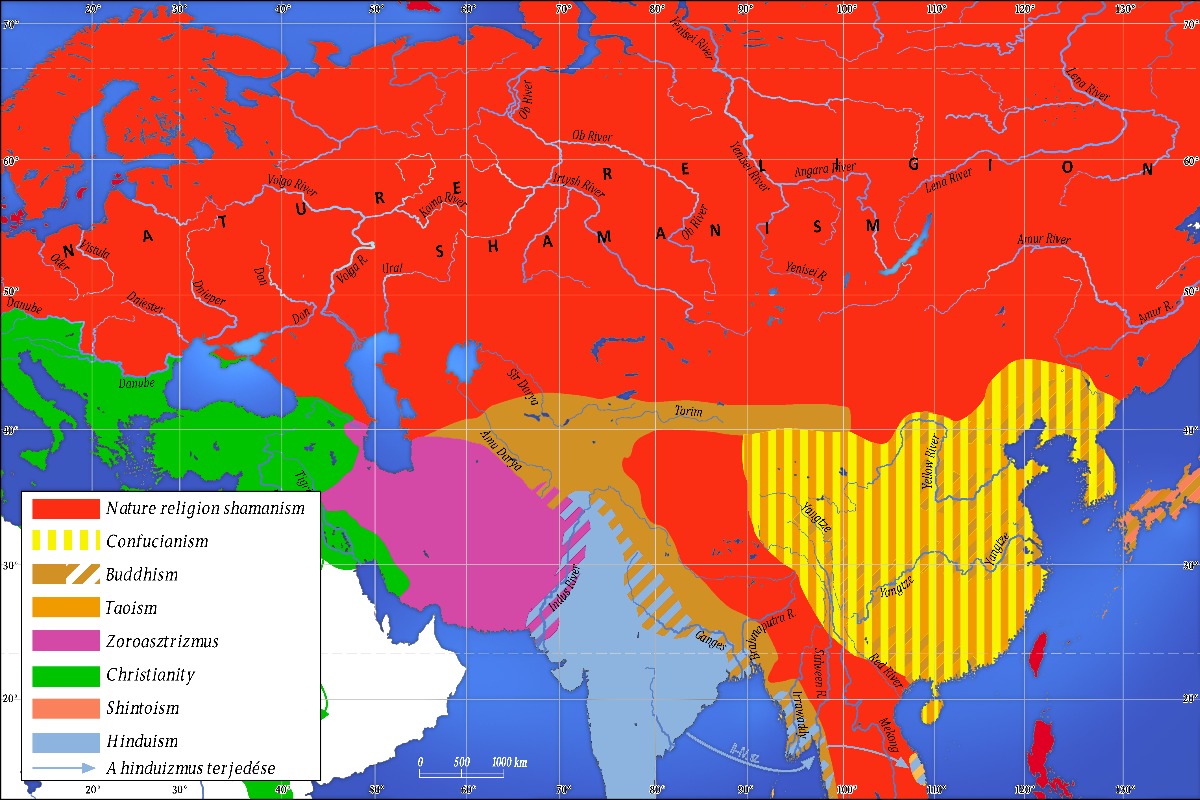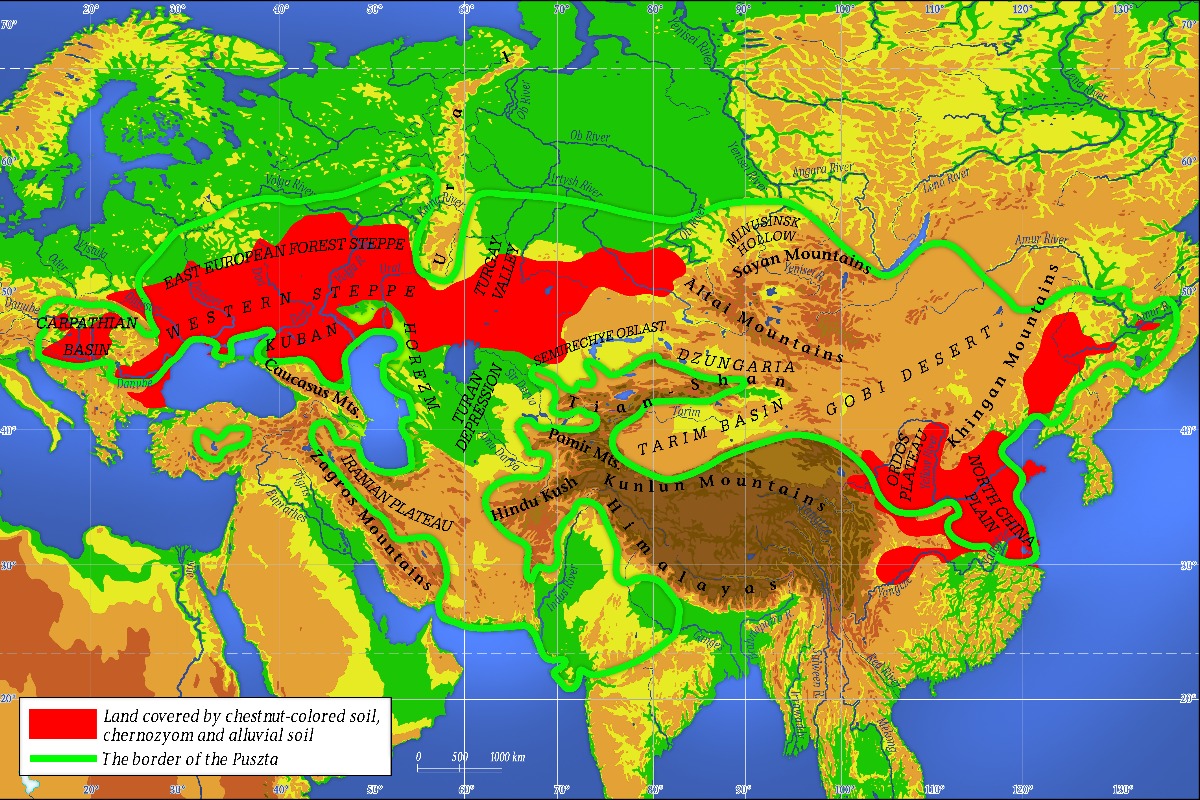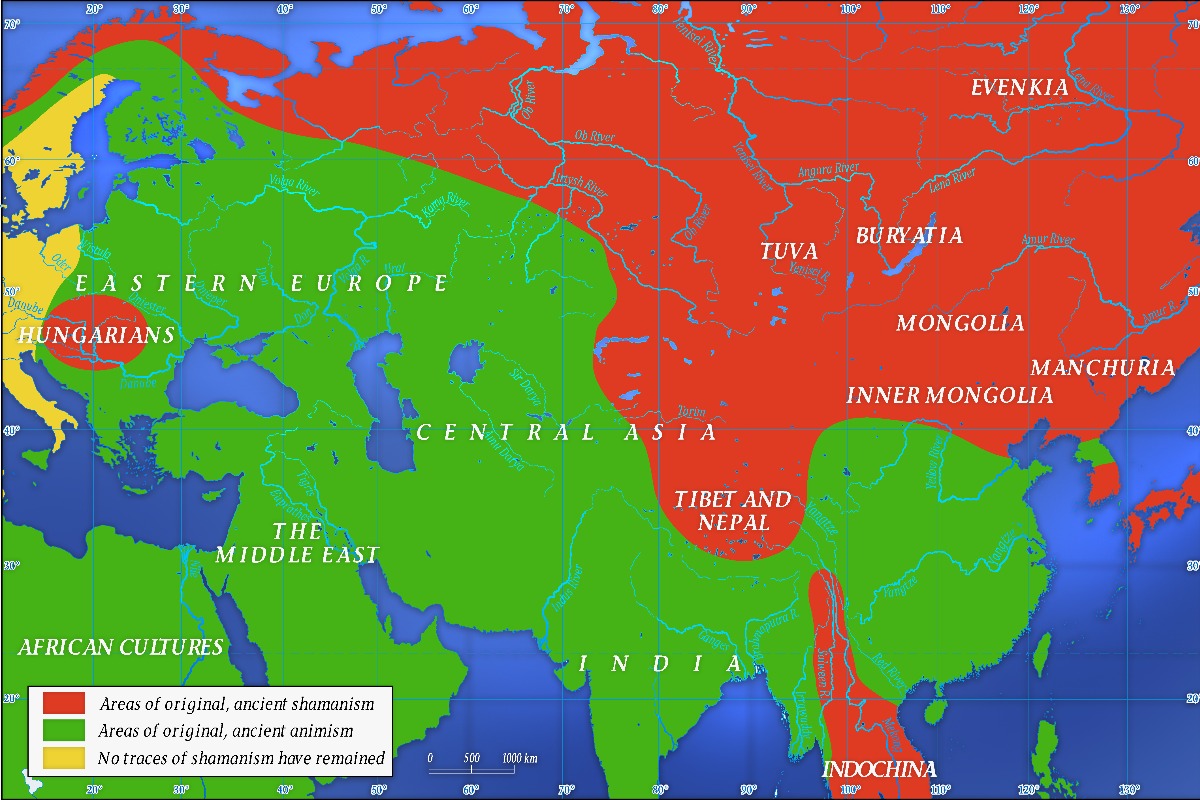
Just as five hundred years ago the Renaissance led to renewal through the rebirth of ancient knowledge, this is again the way to a solution. The difference is that now we have to turn to even deeper layers of the past, and to even more significant cultures of ancient civilisation, namely Eurasian prehistoric ancient knowledge.
What knowledge do we need today? First and foremost, knowledge to provide substantiation for our decisions. To understand life and the world, to establish a system of choices serving the elevation of peoples and our homeland and our natural environment, at the individual, communal and cosmic levels of our lives.
Human knowledge is communal in nature and comes from tradition. Through the ages, tradition was the compass for our decisions. Modernity, however, has brought individualism to the fore and pushed tradition into the background. Modern man has been left without a natural compass and has come under the influence of the forces that control society. Time has derailed, history has drifted into the service of power. The forces underlying order in nature are still at work today, in universal human nature as well as in our natural environment, just waiting for us to use them to live a fuller life. Today, the time is ripe to regain the compass within the nature of life, understand the nature of life, the natural law directed towards the elevation of life, which is the inexhaustible source of life energy, which provides a backbone, a real natural force for the overall upliftment of our life. Today, the time has come to understand the communal nature of life, the seven fundamental levels of organisation of cosmic life, and the essence of the overall quality of life. Today, the time has come to base our decision-making system on a reality that encompasses not only the material world but also the world of life and reason, and besides invidual life, also communal and cosmic life.
Thousands of years ago and even longer ago, in the vast era of ancient history, the Ancient Silk Road region, from the Carpathian Basin to the Pacific Ocean, was dominated by an ancient, natural, life and community-centred world-view, natural science, natural philosophy and natural religion, where the greatest value was universal life, the all-pervading life of nature. Behind the nature religion lies the notion of a living universe, a mandating and omnipresent cosmic life.

The Ancient Silk Road is the region where the natural geographic conditions are most favourable for the preservation and transmission of ancient cultures and the linking of major civilisations. This is the area where the science of cooperating with nature and ancient knowledge — the unified knowledge system of natural philosophy, natural science, and natural religion — is most strongly rooted. The contemporary name of the life-centred ancient system of knowledge had been wisdom. While knowledge in modernity is value-neutral, wisdom is a system of decisions for the benefit of life. Decision-making for the benefit of life requires a clarification of the orientation inherent in life. Clarifying the directionality of the law of life allows us to get closer to understanding the driving forces of ancient history.

According to nature religion, the organisation of society in ancient Eurasia was directed towards the benefit of life and cooperation with nature, towards the creation of the most favourable conditions not only for the natural environment but also for universal human nature, towards the fulfilment of man's best capabilities. The cosmic law of life throughout the Universe was the basis and fundamental guarantee of life, justice and a prosperous social life. The cosmic law of life was at the centre of the experiential world. For a man living in a life-centred civilisation its existence was as certain as the fact that rock is hard and water is wet. This ancient approach of life, world-view unifying knowledge, philosophy and religion consisted of a profound system of explanation of nature, an understanding of the ultimate basic elements of reality. It was characterised by unconditional respect for nature, by considering nature's behaviour as a model for human action, by gratitude for and appreciating gifts of nature and its forces, and by eco-animism, i.e. the maintenance of ecological balance through cooperation with nature. The natural philosophy of animism teaches that everything in nature has a soul, that it is not to be violated, or simply that such violation is pointless, because it brings about a punishment on the life of the community. Learning about and understanding the Hungarian and Székely (an ancient Hungarian nation living in Transylvania) traditions in the Carpathian Basin, the common cultural elements along the Silk Road, and the thousands of years of life-centred philosophy preserved in written form in China, also holds fundamental lessons for building our future.
We are facing a turning point not seen for five thousand years. The development of science has now converged with ancient Eurasian culture, and we are beginning to understand the higher quality of ancient knowledge. The time has now arrived to learn about the ancient Eurasian civilisation that predates Mesopotamia. Now is the time for synthesis, because the age of analysis must be followed by the age of synthesis. It is now that material development has reached the level of great material well-being. It is now that material development has reached the ecological threshold. Now is the time for the rise of the soul and the intellect. Now is the time to balance the individual, the community and the natural environment. Now we are beginning to understand the importance of the life principle, life energy and life time for the quality of life. It is now that humanity has reached the age of almost instantaneous, planet-wide information exchange, transport systems, the age of unification. The New Silk Road is now under construction, reconnecting the peoples of Eurasia's ancient culture. The time has come to make the unified system of explanation of nature available to all, a unified science and philosophy of nature which, through an understanding of the life principle, is at once comprehensible to all and capable of providing the basis for an all-encompassing overview and a general outlook on all aspects of life and the world. The time is now ripe to tackle the fundamental issues of life, society and the world.
We have much to learn from ancient Eurasia. Eurasia is the largest and most populous continent, with the most ancient culture. Eurasia is the region where nature religion, nature philosophy, civilisation in cooperation with nature, natural geography and favourable living conditions are most closely linked. Eurasia has the deepest historical roots of sustainability. In our series, we open the door to the spiritual life of ancient Eurasia, with the aim of ensuring that our decision-making system becomes more complete and informed, and allowing us to contribute to the fulfilment of the New Renaissance.

The author is Research President at the Budapest Centre for Long-Term Sustainability.